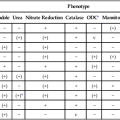
Time management is a problem students encounter across various levels. Demanding classes, assignments, and extracurriculars make you get caught up on schoolwork easily. Worse still, procrastination complicates tasks, and rushing won’t benefit students. Whether you’re a seasoned scholar or a freshman, you’re not immune to the overwhelming effects of cascading writing assignments. Managing your pace while working reduces stress. It further maximizes the resulting quality.
Our article explores how to manage your time as a student. The strategies will help you survive and thrive amidst the academic writing whirlwind. Read below how to streamline research, conquer procrastination, and organize chores more efficiently.
How to Have Time for Writing Assignments with Ease
For the modern student, time management skills are key to success and emotional health. By knowing ways to plan for activities, an undergraduate can handle research paper obligations on schedule and still have space for fun. However, during periods of heavy study load, you may realize when planning for the next week that you won’t have time to handle some tasks. In such moments, many students find themselves thinking, “I need to do my assignment,” leading them to seek help from various resources. This could mean reaching out to peers for support, consulting with professors, or even considering professional writing services. Recognizing when to ask for assistance is crucial; it not only alleviates stress but also ensures that you maintain a balance between academics and personal well-being. By leveraging available resources, students can navigate their responsibilities more effectively and create a more manageable schedule.
In this case, the secret is to explore ways to deal with the problem in advance. As a rule, in such cases, students are looking for a writer they can trust to complete the homework for them. The best solution is to turn to an essay writing service like PapersOwl, where professional writers do your assignment, consider all the requirements, and draft high-quality papers. When you order your paper, you enjoy free revisions, confidentiality, and timely submission. An assignment writing help fits different sceneries and leaves enough space to focus on other duties.
Schedule management and optimization are pivotal to completing missions at the right duration. Follow these strategies for completing assignments on time without sacrificing quality.
Begin with Vital Assignments
Prioritize duties based on their urgency and importance. We recommend you use the Eisenhower Matrix to group chores into diff categories. The common ones are:
- Do urgent and crucial responsibilities first.
- Schedule important but not urgent assignments for later.
- Delegate or minimize the period spent on urgent but not vital homework.
- Eliminate or postpone neither urgent nor crucial obligations.
Start the Preparation Early
Habitual procrastinators put off projects until the last minute. The routine creates stress and does not leave enough time to submit high-quality work. Read through the writing instructions as soon as you receive the topic and develop a plan. Break the project into small chunks and create a strategy that won’t require an all-nighter.
Make a List or Use a Planner
A to-do list tracks assignments and other commitments. Writing projects down assists in remembering chores and relieves stress. Include simple tasks like checking emails or vital details such as deadlines. A digital planner is a suitable alternative to paper. There are some homework time management apps for organizing schedules. The tools sync with other apps, and users can program the software to send reminders, so they don’t forget anything. An application such as Evernote stores notes in different formats and allows students to collaborate.
Research Various Sources
Efficient analysis prevents information overload and saves time. Use reputable sources to review data, or stick to lecture notes and textbooks. Create a rough draft of the points before the actual writing. Sort ideas into paragraphs and subheadings to form a rough sketch and make formatting easy.
Use Free Periods Well
Many students avoid study-related activities during weekends and holidays. However, the day presents the best way to organize assignments and catch up on work, especially if the deadline is on Monday. Take an hour or two to review pending tasks and set priorities.

Work in a Conducive Environment
Social media and online engagement make it difficult to concentrate on assignments. Minimize distractions when you’re working by turning off notifications or creating a distraction-free environment. Initiate breaks after writing for a long period of time. The Pomodoro technique is handy for maintaining balance. Work in intervals, followed by short breaks.
How Does a Large Number of Written Assignments with Deadlines Affect Students’ Mental Health?
Assignments are integral to education. Regardless, students who deal with a lot of homework suffer different health complications. The associated pressure leads to elevated stress and anxiety levels. Undergraduates worry about completing tasks on schedule and struggle to manage their workload. Apart from this, juggling multiple projects creates a sense of urgency. The pressure makes learners rush work, pay little attention, and discourage deeper learning. Some effects of too much homework on health include:
- Burnout – physical, mental, and emotional exhaustion.
- Insufficient sleep, which affects mood, cognitive functioning, and health.
- Isolation and social withdrawal.
- Negative self-perception and sense of inadequacy.
- Irritability and performance anxiety.
- Headache, digestive issues, and compromised immune function.
- Diminished enjoyment of learning.
Tips for Students to Stay Resourced Despite Busy Schedules
Self-care strategies are essential to mitigate homework’s negative effects on mental health. Adopt these tips to stay resources and manage busy schedules:
- Prioritize self-care routines such as exercise, reading, and meditation.
- Set realistic goals and break chores to make them more manageable.
- Use a planner to keep track of assignments in college.
- Find a study buddy.
- Avoid being a perfectionist.
- Utilize campus resources, tutoring centers, counseling services, and more.
- Stay hydrated and eat well.
- Maintain social connections with friends, family, and peers.
- Don’t overcommit too many obligations.
- Limit screen time.
- Ask for help from classmates or academic advisors.
- Reward yourself for completing duties.
How to Handle Lots of Writing Assignments
Schedule optimization is important to complete all assignments on time. So, when you receive a topic, highlight the due dates and make an effort to start immediately. Book an appointment with the instructor to ask questions to grasp ways to plan the process. Use different resources to learn about the task and jot down notes. Pace yourself, make an outline, and follow it. Write the most urgent project first and utilize prompts to maintain the flow. Don’t forget to initiate breaks, eat well, and sleep. Avoid pursuing perfection, as it slows progress. Instead, focus on getting ideas down and refine them later. Add the routine to your daily schedule to understand priorities for each day.






